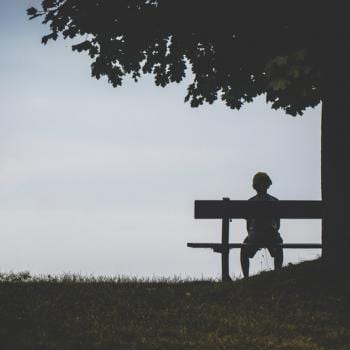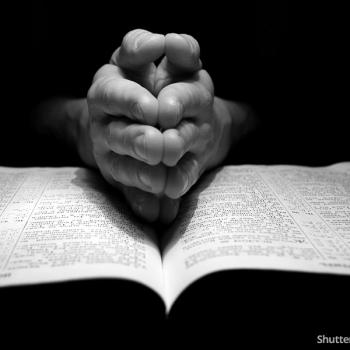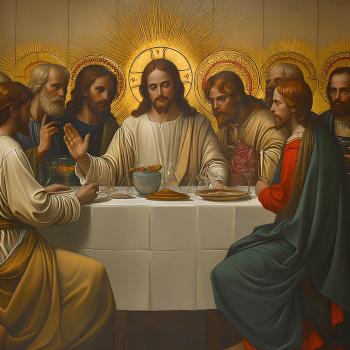None of us ever expects to be quarantined. I certainly didn’t. But following a bone marrow transplant in 2015, I was secluded for four months in hospital housing. Except for my wife, no visitors were allowed. Even after moving home, I remained in quasi-isolation for another eight months. Why? Because my immune system was susceptible to germs and viruses.
With this personal history, what advice can I give to those who are being quarantined by the coronavirus today? Or to those who are being told to shelter in place?
Up front, it is important to acknowledge just how abnormal all this feels. Being unable to talk with others face-to-face is simply unnatural. Taking care of ourselves first – before others – is contrary to the fiber of our faith. Being disallowed to hug those we love violates every instinct in our bodies. Such restrictions make us feel restless, frustrated, and incomplete.
However, as I look back on my year of isolation, all was not all doom and gloom. Though crimped, I found ways to live a meaningful life. Hopefully, my journey can encourage others during these challenging days.
Be Still
A flaming extrovert, I am more inclined towards hyperactivity than sitting still. Yet suddenly, I was thrust into a very different life – one of quietude and reflection. I found myself journaling more, praying more, and reading more. In what could have been a desolate time, I was surprised by how much my sense of the Lord’s presence and overall spirituality deepened. My rediscovery of the spiritual discipline of solitude lifted my soul even as my body was restricted.
Being isolated by the coronavirus presents a similar opportunity. After muttering “if only I had more time” for so many years, a window is open to go deeper in our faith. Being quarantined is an invitation to a richer spiritual life. Rather than rushing ahead as usual – such as binge watching yet another Netflix series – why not relish this odd season as a gift of reflection?
The apostle Paul modeled how to handle involuntary seclusion. Moving abruptly from a high-speed lifestyle to a dank (and very lonely) Roman prison, he learned how to be situationally flexible. Writing to the Philippians, he ruminated: “I know what it is to be in need, and I know what it is to have plenty. I have learned the secret of being content in any and every situation.”
Establish New Routines
When our daily patterns of work, church, and family gatherings are disrupted by quarantine, it’s tempting to dispense with any sense of orderliness at all. Far too easily, we drift into random activities. While it may initially feel good to have no set calendar, a sense of emotional drift and purposelessness slowly settles in if we flounder too long.
When cancer treatment roadblocked my regular routines, I began to establish new ones. Quiet times were elongated. A daily crossword puzzle followed breakfast. When fit enough to work again, I did so online. Zoom became my best friend.
New routines should also include exercise. Walking, my favorite activity, clears our heads, lowers our blood pressure, and lifts our spirits. Out-of-doors, we are mostly safe from the virus. Breathing fresh air is the perfect antidote for cabin fever. Of course, if health care professionals confine us indoors, we must heed their advice. Whenever possible, however, we should seek to find regular times and places to walk (or run or bike).
Serve Others
Even when isolated, we need to find meaning. And the best way to do so is to help others. This may include calling an older friend or family member. Or it may involve completing a long-delayed project that will bless others – such as drafting a family history, painting, writing poetry, or putting together a photo album.
For many, serving also includes caring for the person we live with. Relationships can either grow or regress in such times. My wife, Mary, and I were cooped up together in a 1,000 square foot cancer housing apartment. While this sounds like a recipe for marital disharmony, it actually brought us closer together. If our love could flourish under such dire circumstances, I am optimistic that the same is possible for others.
Lean Into Hope
It is only human to imagine that today’s experience will extend forever. For many, the virus presents a first brush with mortality. But we must never lose hope in God’s goodness and sovereignty. He is fully aware of the events swirling around us.
Let us not squander this crisis. Rather, may it serve as a sober reminder of our status as sojourners on this planet. May we take this opportunity to prayerfully reassess our sense of purpose, priorities, and values.
Just as the isolation of my transplant eventually passed, so the coronavirus will run its course. And, when that happens, we will once again hug family members, attend church, go to school, celebrate with friends, and join work teams.
In the meanwhile, may we find encouragement from the apostle Peter:
“Humble yourselves under God’s mighty hand, that he may lift you up in due time. Cast all your anxiety on him because he cares for you… Stand firm in the faith… After you have suffered a little while, he will himself restore you and make you strong, firm and steadfast.”















